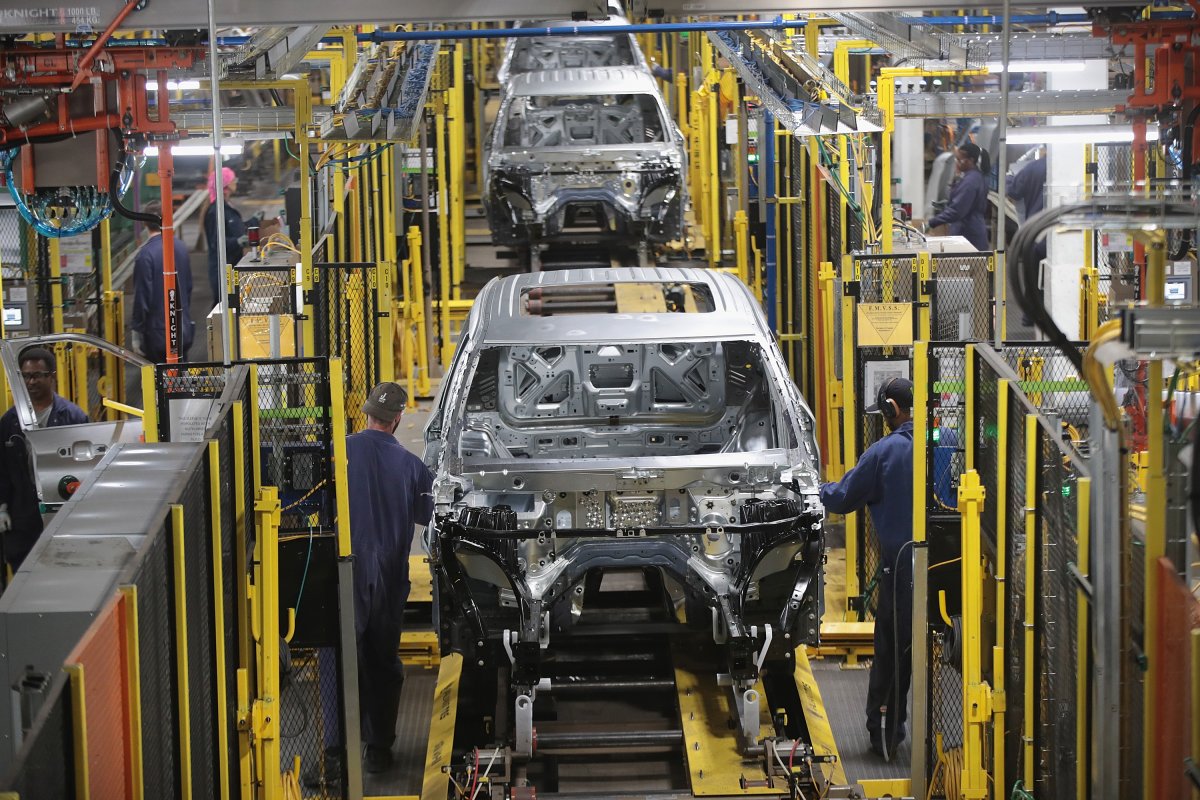Those of us in the working class love and value the same things as most Americans. We want access to meaningful opportunity, security, and to see our communities and country thrive. But if you were to ask most working-class people if they think our government advocates meaningfully for the things mentioned above, many would respond with a resounding no.
This working-class malaise is in line with a Pew Research survey from last year that revealed that eight in 10 Americans are dissatisfied with the direction the country is headed. Over 75 percent believe that the economic system in the country unfairly favors powerful interests, as opposed to being generally fair to most Americans. This feeling is on steroids in the American working class.
A lot of the downward mobility of the working class can be attributed to deindustrialization. I'm the proof–though not in the way you might expect.
I was lucky to get a good manufacturing job a few years out of high school which provided me with stability and a foundation for the American Dream. Growing up as a working-class kid and experiencing the exhausting despair of poverty and homelessness during my late teens, this manufacturing job was life-giving. While these jobs are less prevalent than they used to be, there are still some manufacturers that have been able to hold out here in the Midwest where I live.
Historically, careers in manufacturing have been the wind beneath the wings for many working class families in the Midwest. You would be hard pressed to find an Ohioan who doesn't have an elderly family member that worked in one of the now near-mythological manufacturing jobs that were once plentiful in the second half of the 20th century. Some worked for large manufacturers like GM, Ford or GE. Many worked for smaller manufacturers—producing any manner of finished goods. Regardless of who they worked for, the prosperity made accessible by careers with these manufacturers shared certain qualities: They paid well, had a reasonable schedule with access to overtime opportunities, and guaranteed a secure retirement waiting for their employees in their golden years.

At a certain point, the American economy began to change. Over a period of several decades, we saw American manufacturing decay, or otherwise shift overseas, with many of those meaningful working opportunities for Americans going with it. The loss of these opportunities left many Americans scrambling and struggling to keep up, which has continued to this day. From 1979 to 2019, the U.S. lost nearly 7 million manufacturing jobs—a 35 percent loss from its peak in 1979. As America shifted to prioritizing a burgeoning GDP at all costs, we perverted our socioeconomic compass by aiming it toward expedient profit over a sober-minded and secure future.
The dangers of America's weakened industrial base was on full display during the COVID-19 pandemic. Supply chain bottlenecks gripped American society, and everything from food to raw materials to manufactured goods skyrocketed in cost. Our political leadership finally woke up and started to question the wisdom of trading a reasonable means of national supply for cheap foreign labor, cheap stuff, and friendlier bottom lines for corporations. It's why we have seen so much effort by the Biden administration to pass legislation like the CHIPS Act.
Efforts to bring manufacturing back to the U.S. will reap more benefits than just creating good jobs and bolstering national security. Manufacturing is also a breeding ground for innovation, which is why China is on pace to surpass us in innovation capacity come 2035.
It's essential that the United States choose to invest in and encourage the growth of its industrial base. Through strategic tariffs that shield domestic industries and subsidies that encourage domestic growth, America can start to right the course in this regard.
Incentives should be offered to manufacturers to aim their production power toward creating outputs that our markets most value at any given time. Investment in apprenticeships programs and technical training can ensure we are preparing skilled workers to participate in this revitalization effort. The return on investment will be domestic manufacturing revenues climbing through domestic and international trade, as well as prosperity spreading more equitably among America's social classes.
Whether it is a healthy industrial base's unique ability to bring about rewarding jobs for Americans across all education levels or its ability to bolster national security with meaningful levels of supply and essential advances by way of exciting innovation, a pragmatic commitment to common sense industrial policy is invaluable.
This isn't an isolationist reflex, nor is it unfriendly to the free market. Rather, it is a commitment to make American capitalism a tool for her people, as opposed to making the people of the world a tool for her capitalism.
We can meaningfully participate as a world leader as well as prioritize a common-sense balance of creating opportunity and security here at home. It is simply a matter of choosing to value appropriate outputs: good jobs, balanced trade, and population-wide access to prosperity. Or rather, our politicians and business leaders should choose to love and value similar outcomes as most ordinary, hard-working Americans.
Skyler Adleta is a licensed electrician and construction project manager. His writing is featured regularly at Newsweek and Comment Magazine. You can follow Skyler on Twitter/X @SkylerAdleta.
Correction: An original version of this article implied the author had gone to college. We regret the error.
The views expressed in this article are the writer's own.
Uncommon Knowledge
Newsweek is committed to challenging conventional wisdom and finding connections in the search for common ground.
Newsweek is committed to challenging conventional wisdom and finding connections in the search for common ground.
About the writer
To read how Newsweek uses AI as a newsroom tool, Click here.








